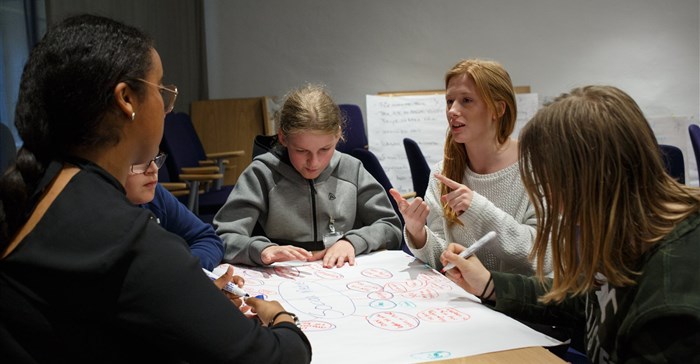
Top stories


Logistics & TransportIata urges global safeguards for aircraft systems as 5G/6G rollout continues
15 hours

AgricultureAgricultural exports from Africa are not doing well. Four ways to change that
Lilac Nachum 16 hours



What is a focus group, actually? In case you didn’t know, it consists of six to eight respondents, who have allegedly never met before, in a venue they have never visited before, discussing for ad nauseam a topic, usually of little interest, with strangers they have never set eyes on, with the discussion led by a moderator they have also never met before.
Why should they bother to agree to attend a group discussion at all? Simple. They are paid, fed tasty snacks and drinks of their choice and then released back into their normal lives.
They are recruited for the group discussion by recruiters, who are also paid for their efforts.
All respondents have to satisfy some sort of usage criteria. For example, peanut butter users or supporters of a particular party.
As there is often no way of verifying that these requirements have actually been satisfied, there is the well-recognised phenomenon of ‘groupies’ – respondents whose qualifications for recruitment are fraudulent – conniving with the recruiters.
Some entrepreneurial recruiters have been known to run a personal panel of chameleon-like respondents, who appreciate the pay and look forward to free food and drinks in a welcoming atmosphere – where the moderator hangs onto their every word, unlike their everyday humdrum existence, where they are ignored by all and sundry.
Okay, that is the backbone of qualitative logistics. But are the findings emanating from group discussions valid? Do they really tell us what motivates consumers and help us understand their decision making processes? The answer is a resounding no.
Here’s why.
If you haven’t yet read Nobel prize-winner Daniel Kahneman’s Thinking, Fast and Slow, you are way behind the curve. It is essential reading for every human being, let alone the marketing community.
In his book, Kahneman explains that our minds use two separate systems of thinking, switching from one to the other, as demand dictates.
System one is used for decisions that are quick and easy to make and take little mental effort. Like choosing a brand of tomato sauce.
System two consumes significantly more energy and is used for making more complex decisions, like an arithmetic calculation that is difficult to carry out mentally, forcing you to concentrate on reaching a solution.
Our brain makes up only 2% of our body weight but consumes an astonishingly high 20% of our energy. In an effort to conserve energy, our ‘mind-manager’ will always favour solving any problem in system one.
Hence the power of habit in decision-making – which is relatively effortless.
Consumers make most brand choice decisions in system one, along with most other everyday decisions. Now, let us return to our focus group environment, in which respondents are unnaturally forced into system two thinking for a tedious couple of hours.
You know they only went with “Handwich” because “Meat Cone” was NOT cutting it with the focus groups https://t.co/p9DPA9bTsg
— Rev. Scott Wampler™ (@ScottWamplerBMD) November 8, 2019
The literature shows that, by making them think and discuss something at length that they usually wouldn’t, the interviewing process itself will often change their actual preferences – making the research findings completely invalid.
For an interesting case study, read Malcolm Gladwell’s Blink, in which he describes asking people to taste different jams and to rank them overall in terms of preference. In contrast, a separate sample of respondents was asked to rate different aspects of the jams – like sweetness, amount of fruit, etc. – and then to rank them.
These respondents, who were required to think more analytically, and hence unnaturally, ranked the jams in a completely different order to that obtained from the first sample of respondents.
Remind you of group discussions you have attended as a client?
Focus groups force people to think more about their choices than they would in everyday life. They are also subjected to social pressures, for example, what they feed their children and how important nutrition is to them, forcing them to change their responses to appear more responsible, caring, etc.
In marketing research, there are lies, damn lies and focus groups!
Focus groups cost about R5,000 per respondent. A quantitative study in the digital space costs between R100 and R500 per respondent.
Why on earth are marketers still using a research method that is expensive and misleading, in terms of the results it delivers?
Is it laziness, ignorance or the ego-stroking they receive behind the one-way mirror, being served their favourite snacks and beverage? Do tell.
